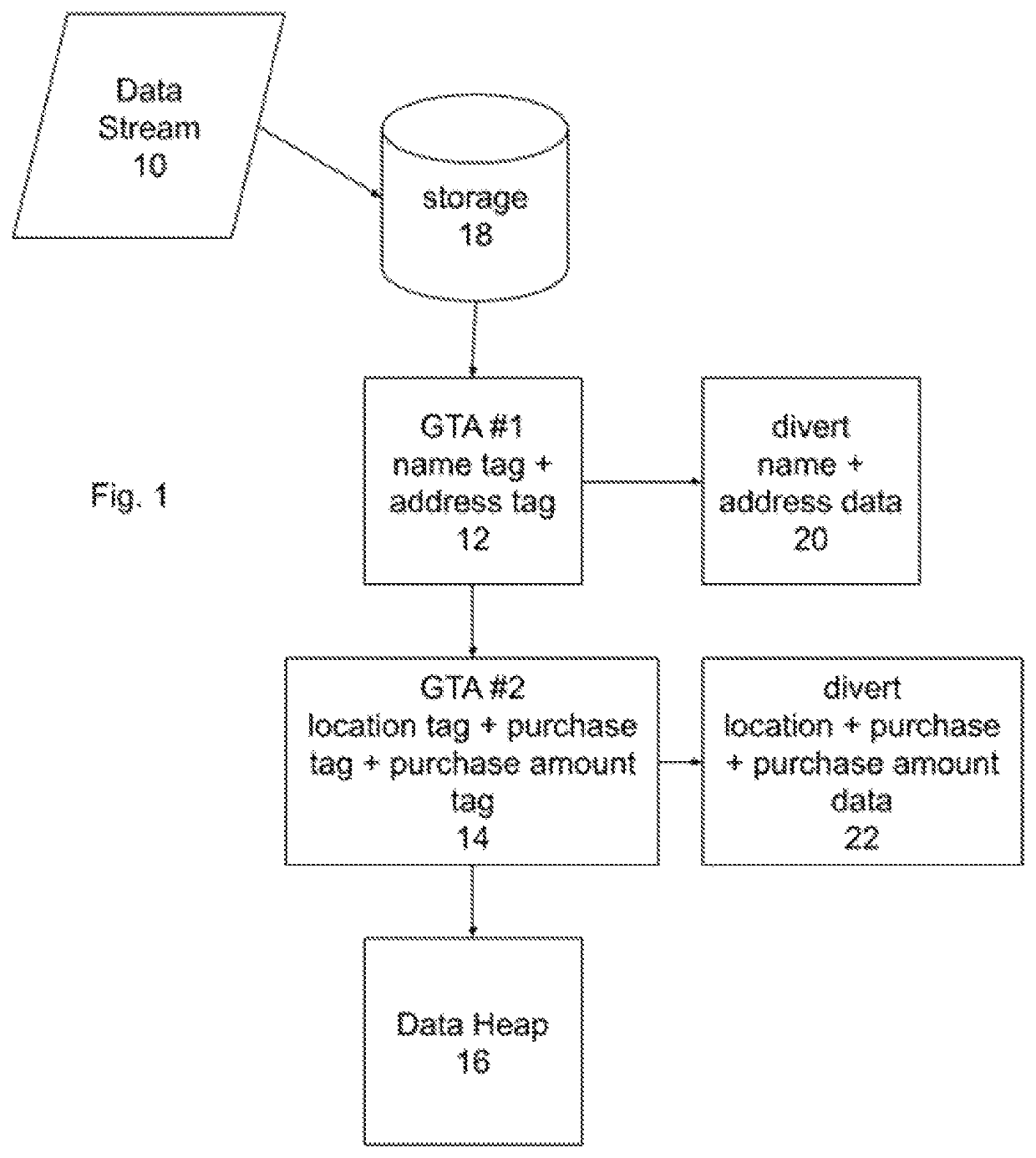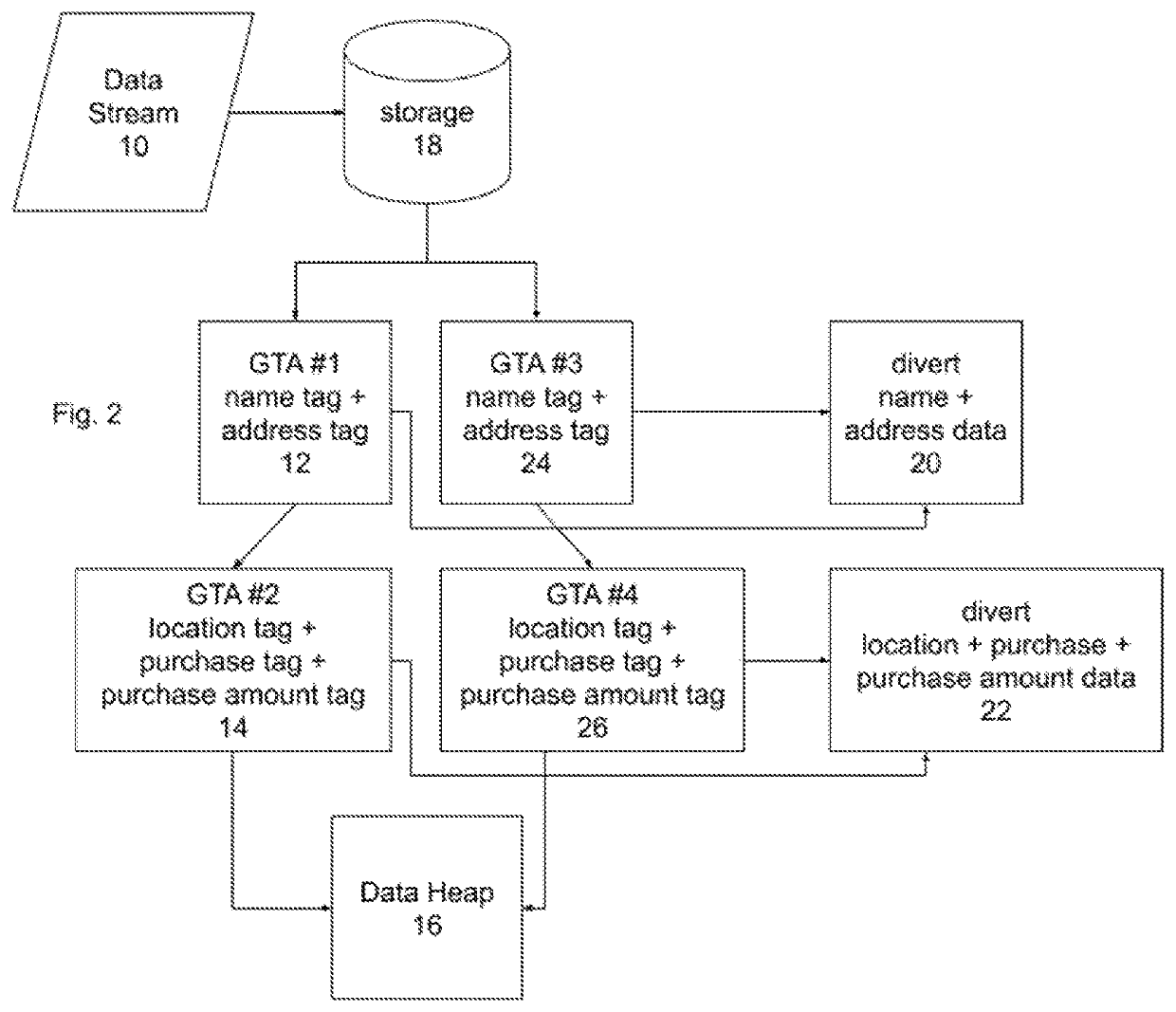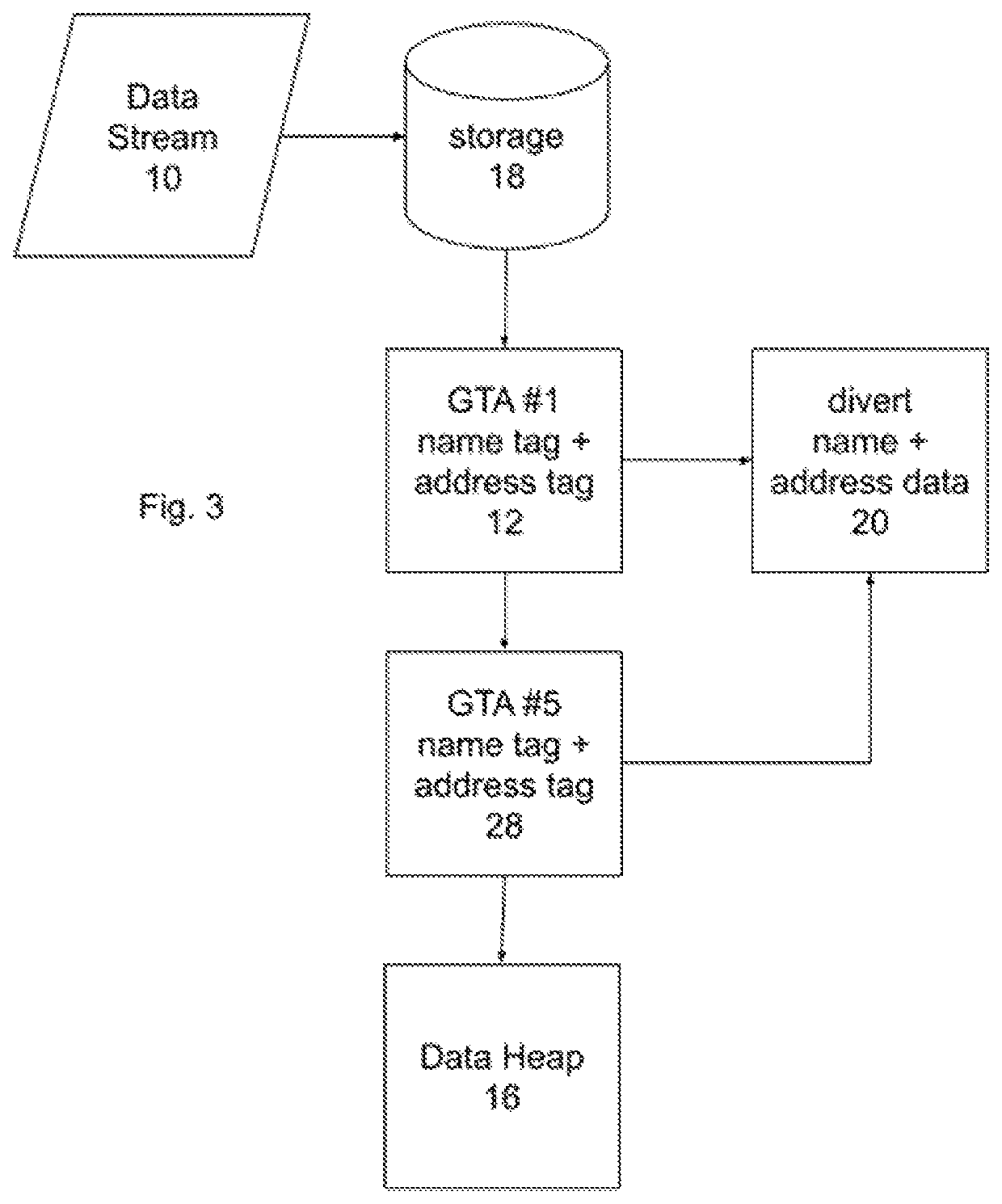Grouping data in a heap using tags
a technology of data and tags, applied in the field of grouping data, can solve the problems of too late to meaningfully use data, data value loss, and inability to identify the group of tags, and achieve the effect of maximizing the usefulness of data and speeding up the identification process
- Summary
- Abstract
- Description
- Claims
- Application Information
AI Technical Summary
Benefits of technology
Problems solved by technology
Method used
Image
Examples
Embodiment Construction
)
[0011]Before the present invention is described in further detail, it should be understood that the invention is not limited to the particular embodiments described, and that the terms used in describing the particular embodiments are for the purpose of describing those particular embodiments only, and are not intended to be limiting, since the scope of the present invention will be limited only by the claims.
[0012]In the first step of a process according to an implementation of the invention, a variety of data is sourced from many different potential sources. These sources may include the Internet (such as from companies like Amazon, WhatsApp, and Instagram); Internet of Things (IoT) devices such as web cameras, refrigerators, and home automation devices; or from customer data files. As the data streams in over a network, it is written to storage by the enterprise. The enterprise then begins organizing the data using a data structure such as a heap. For purposes herein, a heap may...
PUM
 Login to View More
Login to View More Abstract
Description
Claims
Application Information
 Login to View More
Login to View More - R&D
- Intellectual Property
- Life Sciences
- Materials
- Tech Scout
- Unparalleled Data Quality
- Higher Quality Content
- 60% Fewer Hallucinations
Browse by: Latest US Patents, China's latest patents, Technical Efficacy Thesaurus, Application Domain, Technology Topic, Popular Technical Reports.
© 2025 PatSnap. All rights reserved.Legal|Privacy policy|Modern Slavery Act Transparency Statement|Sitemap|About US| Contact US: help@patsnap.com



